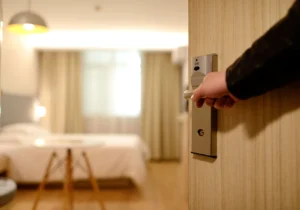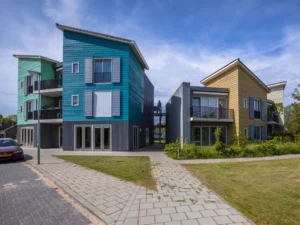Landlord Must Retrofit Wheelchair Ramp, Lift
 A Manchester, New Hampshire landlord has agreed to re-tool the wheelchair ramp on his 10-unit apartment building after two tenants complained it is too steep to maneuver.
A Manchester, New Hampshire landlord has agreed to re-tool the wheelchair ramp on his 10-unit apartment building after two tenants complained it is too steep to maneuver.
HUD charged that the building does not meet the design and construction requirements of the Fair Housing Act. The landlord has 90 days to complete the retrofits per the settlement agreement.
In addition to the steep grade of the ramp, tenants complained that the apartment thresholds were too high for wheelchairs to safely cross, and a basement storage area was inaccessible.
The Fair Housing Act requires that multifamily dwellings designed and constructed for first occupancy after March 1991 be accessible for persons with mobility impairments. It also requires that public and common use areas of a covered property be readily accessible and usable by persons with disabilities.
When the property was first offered for leasing, it was advertised to local health care and housing organizations as having wheelchair accessible apartments and listed a series of amenities, including storage and parking.
The planned retrofits will include a rebuilt front entrance ramp with handrails, an automatic door opener at the front entrance of the property, modified or replaced interior thresholds with proper edge treatments, and a wheelchair accessible lift to the basement storage units.
The landlord will pay a total of $5,750 to the two residents who filed complaints, residents of three other units, and a local transit authority program which serves the transportation needs of persons with disabilities.
With AAOA, landlords have resources at their fingertips. Check out our Landlord Forms page.
American Apartment Owners Association offers discounts on products and services for landlords related to your rental housing investment, including rental forms, tenant debt collection, tenant background checks, insurance and financing. Find out more at www.joinaaoa.org.













 Accessibility
Accessibility